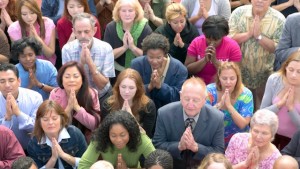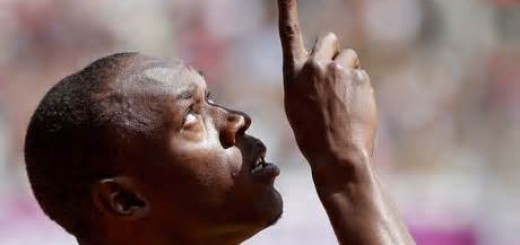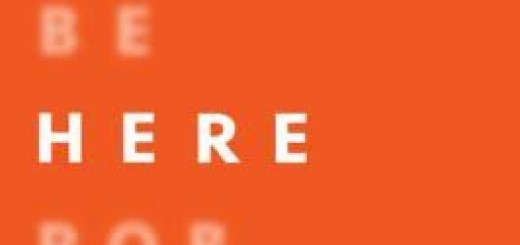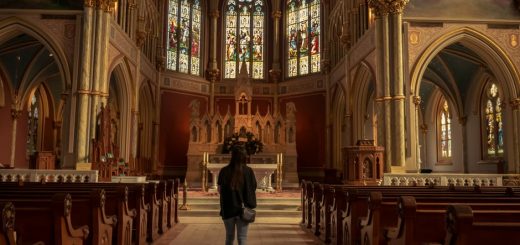No one right way to pray
Habakkuk 3 is entitled Habakkuk’s prayer, but it does not appear to be a prayer in the traditional sense. It’s a wonderful song of praise. At the end of the chapter, the instruction reads –
For the director of music. On my stringed instruments.
 That makes me happy. A prayer accompanied by stringed instruments. I play the violin, you see, so am a fan of stringed instruments. I know that a violin can play a prayer without words. And I love that there are all sorts of different ways to pray and commune with the one true God and express what’s on our hearts to him.
That makes me happy. A prayer accompanied by stringed instruments. I play the violin, you see, so am a fan of stringed instruments. I know that a violin can play a prayer without words. And I love that there are all sorts of different ways to pray and commune with the one true God and express what’s on our hearts to him.
The prayer starts with another instruction –
A prayer of Habakkuk the prophet. On shigionoth.
No one seems to know for sure what shigionoth means. The footnote suggests that it is probably a literary or musical term. The Bible Guide by Andrew Knowles puts forward the idea that shigionoth comes from a Hebrew word meaning ‘to wander’ and therefore may be encouraging the musicians to improvise.
 As a classically trained violinist, I was never taught how to improvise. My son is the opposite. He taught himself how to play guitar and keyboard and so improvisation comes naturally to him. I started with scales and theory; he came to scales and theory much, much later. We’re both good musicians, but with an entirely different skill set. When it comes to improvisation, he beats me hands down. When it comes to sightreading music, then that’s my thing, not his.
As a classically trained violinist, I was never taught how to improvise. My son is the opposite. He taught himself how to play guitar and keyboard and so improvisation comes naturally to him. I started with scales and theory; he came to scales and theory much, much later. We’re both good musicians, but with an entirely different skill set. When it comes to improvisation, he beats me hands down. When it comes to sightreading music, then that’s my thing, not his.
Improvisation has a freedom to it. You play from the heart, expressing what is deep within. You’re responding to the main motif of the melody, not overpowering it but enriching it. You’re sensitive to what the other musicians are doing and are working with them and not in competition with them. There’s a wonderful assurance in improvisation – that you have your part to play in the whole that adds to the whole.
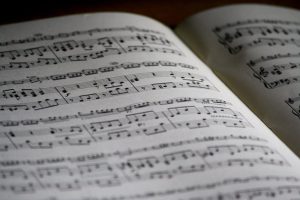 And actually, there is a framework of musical theory to work within. This is not complete freedom. You can’t just play anything and hope to get away with it. The more you understand scales and chords and the theory behind it all, the more you can work with that. There’s that saying, isn’t there, you have to know the rules before you can break the rules. That’s what my son’s been learning for the last three years at music college.
And actually, there is a framework of musical theory to work within. This is not complete freedom. You can’t just play anything and hope to get away with it. The more you understand scales and chords and the theory behind it all, the more you can work with that. There’s that saying, isn’t there, you have to know the rules before you can break the rules. That’s what my son’s been learning for the last three years at music college.
For someone like me, it’s about being less reliant on the notes on the page and having the confidence to branch out from that. To play around with it a little. To trust what you know and have some fun. Create something beautiful. Use your experience to respond to the rhythms and melodies and expression of the piece.
My son has asked me to jam with him sometime. There’s nothing written down. You just play and see what happens. That scares the life out of me. He can’t understand that at all. It comes so naturally to him. The only way it will ever come naturally to me is to do it!
 All of this makes me think of prayer, because this is written today in the context of Habakkuk’s prayer. Maybe in encouraging the musicians to improvise, Habakkuk was allowing himself to improvise in his prayer, to go with the flow and see where it took him. To express what was deep in his heart. Maybe that was unusual to him. Maybe he hadn’t been taught to pray that way.
All of this makes me think of prayer, because this is written today in the context of Habakkuk’s prayer. Maybe in encouraging the musicians to improvise, Habakkuk was allowing himself to improvise in his prayer, to go with the flow and see where it took him. To express what was deep in his heart. Maybe that was unusual to him. Maybe he hadn’t been taught to pray that way.
Some of us were taught how to pray. We learnt the Lord’s Prayer. We learnt the other prayers in the liturgy of our church. Even if we attended a church without a set liturgy, we learnt stock acceptable phrases that everyone was using and adopted them into our own prayer language.
And maybe those of us who learnt that way struggle to speak to God in our own words. We have become reliant on the words of others. Our prayers are not an accurate reflection of what is really in our hearts.
Some of us were never taught how to pray. We improvised right from the start. And coming to a liturgy and learning from Jesus how to pray came later. Because a framework, guidelines of how to pray can give a structure to our prayers, can make sure they are not all one response to God (confession or thanks or supplication or praise…)
Just as there is no one right way to play a musical instrument, there is no one right way to pray. We can actually all learn from each other how to express ourselves to God, just as I can learn from my son how to improvise and he can learn the conventions of musical theory from me.
If you are expressing what’s in your heart to God, then that is prayer.
That’s what Habakkuk is doing in this prayer. And it’s beautiful. I can’t wait to share it with you tomorrow.
